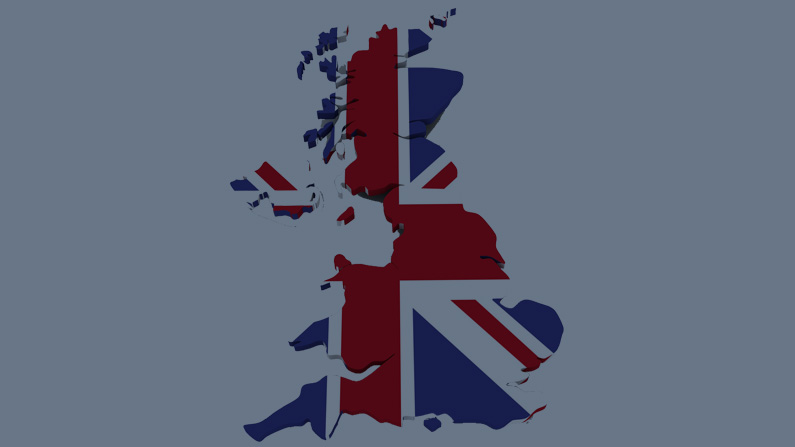UK election week round-up: 9th to 15th April
The 2015 UK parliamentary election promises to be an interesting one, considered to be the first time we’ll see a seven party race, there is no stand-out winner predicted yet and chances of a coalition are high. It is also the first time that social media is likely to have a big impact. There are lots of election trackers watching the media coverage and response to this event, we particularly like Election Unspun by the Media Standards Trust, Ipsos Mori’s Issues Tracker and the BBC’s ‘Poll of polls’. Most of these focus on one specific channel and at Commetric we wondered what we might learn from looking at these findings together, comparing what’s been published in the edited press, with what people publish themselves on social media and what people say are the important issues when asked. This is how we did it and what we have learned.
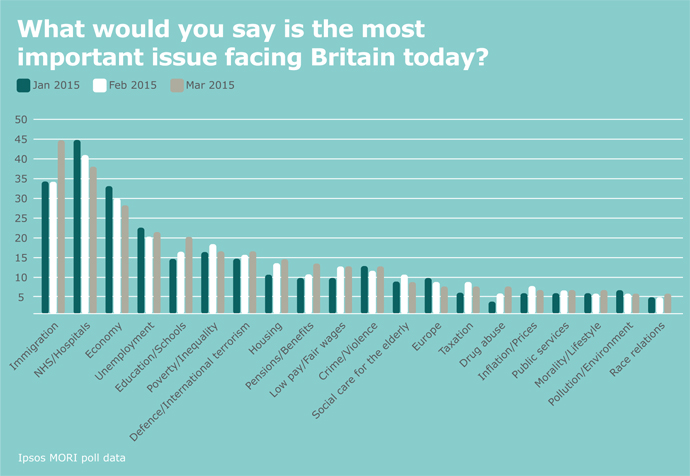
Ipsos MORI’s Issues Index asks UK residents ‘what would you say is the most important issue facing Britain today?’ The results this year have been consistent, people say it’s the NHS, Immigration and the Economy.
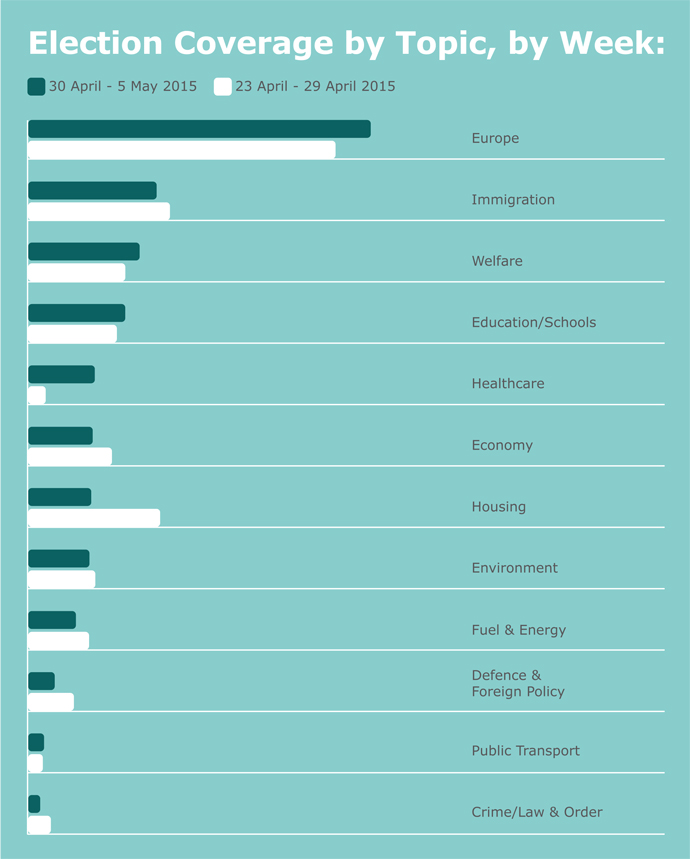
So is this what receives the most media coverage? Is this reflected in what people write about in blogs, forums and on Twitter? Not this week it wasn’t, this week the dominant issues in the media were Europe, Welfare and Immigration. That’s two weeks now that Europe has been the leading topic, despite the decline in complaints that the leadership debates were very UK-centric. Immigration and Healthcare, the two most important issues according to Ipsos data, both received less news and discussion this week while Environment saw an increase. This week we’ll take a look at those three issues in more detail.
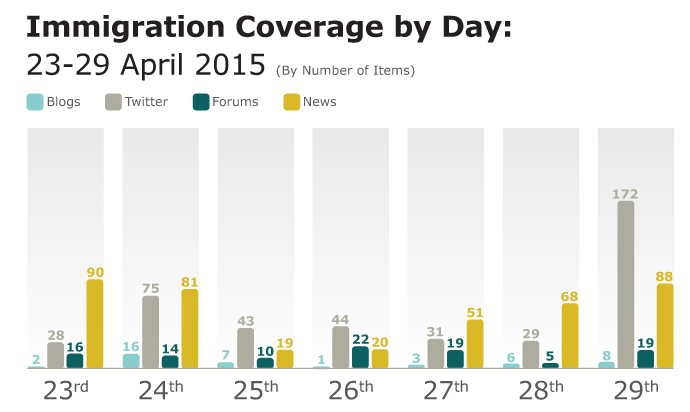
The increasing focus on immigration in mainstream news throughout the week was not matched in social chatter, although the topic did receive more social media attention than mainstream media, the only issue to do so. UKIP remained the main party associated with the issue, in both types of media, its release of its manifesto on the 15th being reported heavily. Many mainstream titles focussed on the mixed messages the party is communicating about immigration, Matt Chorley at the Daily Mail reporting: ‘Ukip’s manifesto launch descended into farce today amid confusion over its flagship immigration policy’. On Twitter, a spike in Tweets on the 10th was prompted by a tweet from Oxford University’s Max Roser, who posted a data visualisation indicating a negative correlation between UKIP voting hotspots and actual UK immigration hotspot areas. Later in the week, UKIP candidate for Barnet, Khalid Khan, tweeted that convicted immigrants will lose their right to a UK passport and the right to vote, leading to multiple retweets.
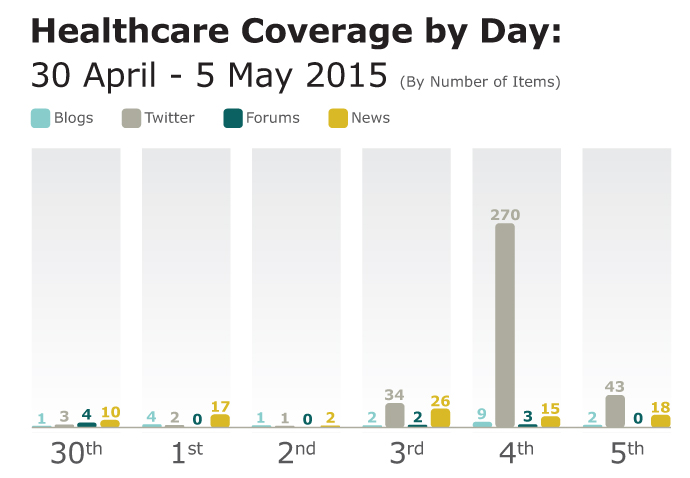
The Conservatives, Labour, UKIP and the Lib Dems, in that order, were most likely to be associated with healthcare in the mainstream news this week. Healthcare was a key component in the launches of all the political manifestos, however it did not inspire much social media commentary. Nigel Farage’s comments during the televised leaders’ debate about HIV treatment for immigrants continued to be covered, following Douglas Carswell on his campaign trail.
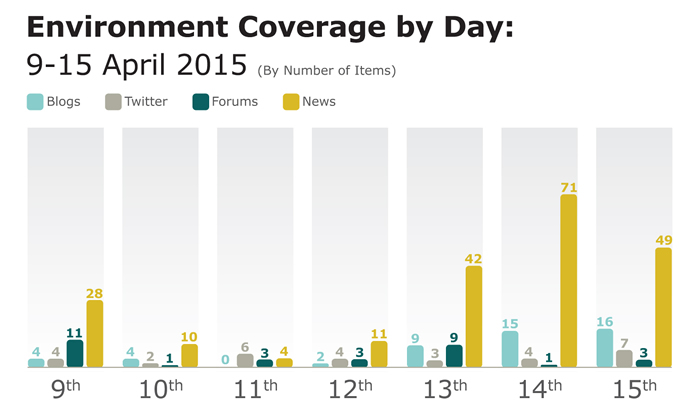
There was an untypical focus on the environment this week, prompted by the launch of the Green Party’s manifesto. Not to be left out, the Conservatives and Lib Dems also made policy announcements about renewable energy. Environmental policies within the manifestos inspired bloggers to discuss the Conservative and Labour treatment of the issue, this blog post by Touchstone from the TUC was particularly scathing about the Conservative attempt, ‘Conservatives’ “anti-green growth, anti-clean energy manifesto”
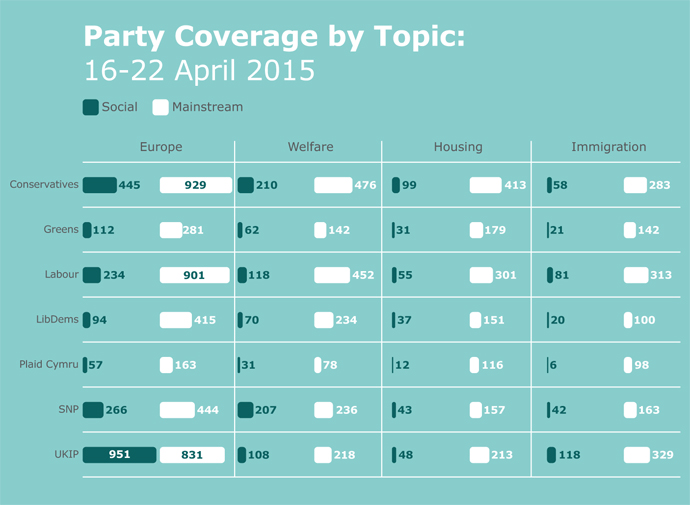
By combining searches for the main political parties with the issues, we have also investigated which parties are being associated with which issues. UKIP is clearly dominating the immigration space, as you might expect. It’s interesting that the Green Party does not have a similar hold of the Environment conversation.
ABOUT THE ROUND-UP
We used the Ipsos MORI issue groups to create searches using related keywords to interrogate mainstream and social media. We then charted the volumes of mainstream and social media coverage for each issue and created word clouds, which highlight the most frequently occurring words in a debate. Our team of analysts then examined this data to pull out the interesting findings. The searches used include key phrases used by the general public to ensure relevant data is returned – the welfare search for example included terms such as JSA, jobseeker’s allowance, DWP, Department for Work and Pensions and bedroom tax. All coverage also had to mention phrases associated with voting or the election as well as the UK, England, Scotland, Ireland or Wales.

